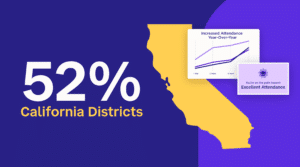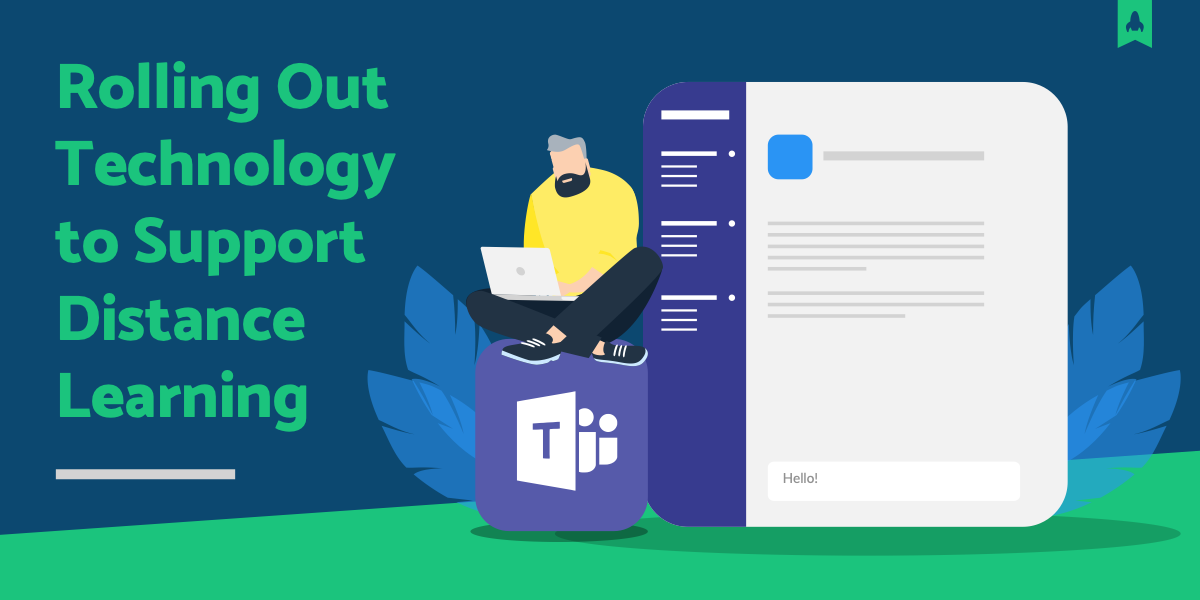
Featured Resource
Why Over Half of California School Districts Trust SchoolStatus
Read More >Join Mission: Attendance to reduce chronic absenteeism in 2025-26! >> Learn How <<






John Heffernan, Technology Enhanced Learning and PD Coordinator for Tipperary Education and Training Board in Ireland, shares how his organization rolled out edtech and video tools to support educators and students with distance learning—plus some best practices to keep in mind when your organization decides to do the same.
I
nstructional coaches around the world are being forced to improvise as their schools make the shift to online learning. They’re being tasked not only with curating resources for their staff on distance learning but also training and educating teachers on how to use online tools for the first time in their career.
My role during these unprecedented times has focused on planning for rollouts of technology to support remote learning in a rural part of Ireland. Below are a few ways I’ve supported my staff along their remote journey and how you can do the same!
The first hurdle I faced was ensuring that we had sufficient devices to give to individual students and tutors so they could access and deliver remote learning. On top of the hardware considerations, we rolled out Microsoft Teams to teachers who had not previously engaged with it.
Although we’d much prefer to deliver in-person learning, video meetings have allowed us to replicate the classroom environment with our students. In addition, we’ve ramped up additional online teaching resources, including moving some face-to-face courses to Moodle in their entirety.
We have supported our tutors and teachers with 1-to-1 webinars, group chats, and by maintaining the relationships that we had prior to the lockdown. This is a novel situation for many staff who are more used to the collegiality of a teachers’ lounge than engaging with colleagues via a laptop screen.
It’s important to build relationships with those teachers prior to trying to achieve a major change in their teaching practice. This can be done with adequate communication at the right time, with the right focus, and with proper support where needed. Coaches need to constantly be on the lookout for those who are slipping off the radar and be sure to reach out to them before it’s too late.
At the other end of the spectrum, some educators will embrace this opportunity to experiment, trying out new tools and ideas. You’ll want to be there to offer support to those who are finding their own path, celebrating successes and sharing them with the wider team as appropriate.
We had started to implement a European project called Technology Enhanced Learning Mentoring Support (TELMS) prior to the lockdown. TELMS provides a mentoring process along with a range of tools and resources to support teachers and enhance student learning through the use of digital technologies.
As a result, one of the lucky advantages we had during our shift to distance learning was a preexisting network of educators who were willing to mentor their colleagues. This made supporting remote teaching and learning so much easier, freeing up coach time to triage problems and focus on the bigger picture.
Pro tip: Identify those who can mentor others!
Teachers can spend a lot of time searching for resources of dubious quality, and can get easily frustrated with the options that they find. You don’t need to create every resource that your staff may need; instead, be a filter!
Be the person to help identify what’s good and what to avoid. Select resources or tools that are accessible to your intended audience and lead by example by showcasing best practices.
Before the rollout of technology or video within your organization, you need to have a plan in place. Then, once technology is in the hands of students and staff, it’s imperative that you find ways to support all levels of users to minimize errors to increase the chance of successes that are brought with the use of technology.
Remember: some of the best resources you have to support technology and video rollouts are the staff you already have: mentors!
John Heffernan is the Technology Enhanced Learning & Professional Development Coordinator for Tipperary Education and Training Board in Ireland. The remit of Tipperary Education and Training Board is the provision of a comprehensive range of quality education programs to meet the needs of the community we serve. These include second level education, further education, second chance learning, adult and community education, and vocational training services.
John has worked in educational technology and coaching support roles for various educational institutions in both Ireland and the US.
Be sure to follow John on Twitter @johnmayo!
{{cta(‘352a410e-db79-4f33-a482-d301e8041965′,’justifycenter’)}}
 SchoolStatusSchoolStatus gives educators the clarity and tools they need to get students to class and keep them moving ahead. Through our integrated suite of data-driven products, we help districts spot attendance patterns early, reach families in ways that work for them, and support teacher growth with meaningful feedback. Our solutions include automated attendance interventions, multi-channel family communications in 130+ languages, educator development and coaching, streamlined digital workflows, and engaging school websites. Serving over 22 million students across thousands of districts in all 50 states, SchoolStatus helps teachers and staff see what matters, act with speed, and stay focused on students.
SchoolStatusSchoolStatus gives educators the clarity and tools they need to get students to class and keep them moving ahead. Through our integrated suite of data-driven products, we help districts spot attendance patterns early, reach families in ways that work for them, and support teacher growth with meaningful feedback. Our solutions include automated attendance interventions, multi-channel family communications in 130+ languages, educator development and coaching, streamlined digital workflows, and engaging school websites. Serving over 22 million students across thousands of districts in all 50 states, SchoolStatus helps teachers and staff see what matters, act with speed, and stay focused on students.
News, articles, and tips for meeting your district’s goals—delivered to your inbox.






